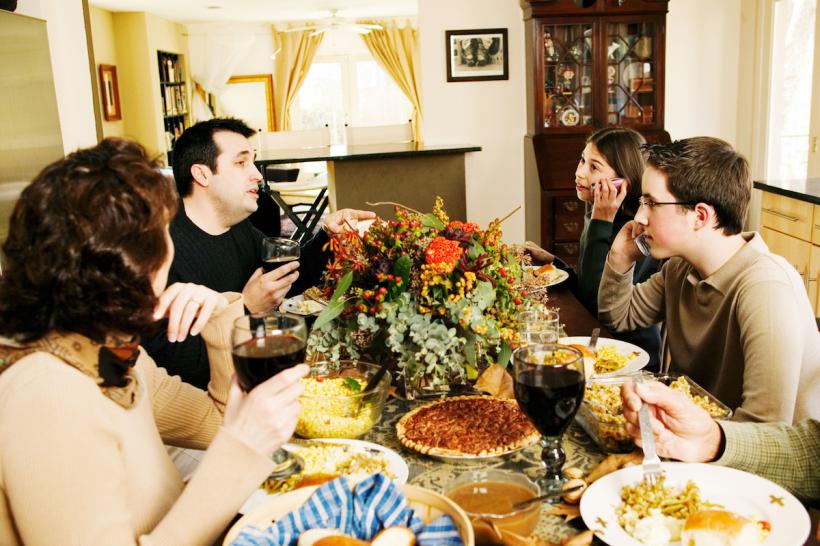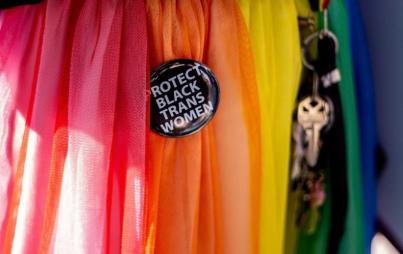
If they make a racist joke, ask them to explain why it’s funny. Say, “I don’t get it, can you explain that joke to me?”
This article by Marcy Hogan first appeared on Medium and has been republished with permission.
According to exit poll data, it is largely thanks to white people that Donald Trump will be the next President of the United States of America. Sure, we could blame minorities for not voting in larger numbers, or blame those who voted for third parties, but those are convenient scapegoats that ignore the fact that whites at all socioeconomic levels overwhelmingly voted for a racist, sexist, xenophobic bigot.
These are our friends and family members. They are the people with whom we probably haven’t talked politics because we’ve been taught to believe it’s “rude” to do so, and also maybe we suspect that we’ll disagree and just get into a fight and it’s better and easier to simply keep the peace. It speaks to our privilege that we have the option to ignore these “differences of opinion” for the sake of a false peace.
But we can’t keep ignoring the (orange-tinged) elephant in the room. Shortly after the election results, Louisa Smith tweeted the following:




So. Let’s #MakeThanksgivingAwkward.
This falls on us white people because:
- These are our circles — our families, our friends, our coworkers — and often these circles are incredibly segregated. It is in these silos of whiteness that people often feel comfortable and safe saying racist comments or “jokes.” It’s on us to push back against them.
- Even when there are people of color within these circles, they may not feel safe speaking up. We have to be the ones to do so.
And also, a sad truth is that white voices are often still more respected and more easily “heard” that those of PoC, especially in our mostly-white circles. We have to speak up.
The same can be said of groups which are largely composed of heterosexual (vs non-hetero), cisgender (vs trans or gender-fluid), and able-bodied (vs disabled) people.
Step One: Educating Ourselves
We have to have the right tools to identify and push back against bigotry, whether it be open and overt or the more insidious, quiet, casual kind.
(The following is not meant as a comprehensive list, there are endless amazing resources and I’m just attempting to cover the major bases without overwhelming.)
- Read through the articles in this curriculum for white people Americans to educate ourselves on racism.
- If we’re going to talk with people about racism, we have to be specific about how we define racism — we have to understand the limits of the dictionary definition of racism, and why racism it’s just overt acts but also consists of systemic and implicit bias.
- Learn about the myths associated with Muslim people and Islam.
- Find out what Trump’s proposed plans might mean for people with disabilities and for LGBTQ people.
- Learn how to identify examples of rape culture, and how prevalent they are (including how a man who bragged about assaulting women still got voted president).
- Read about what intersectionality is and why it’s important.
- Keep up with the news of hate crimes committed since Trump’s election.
As you read through some of these you may feel guilty or angry. You may feel defensive, and feel the need to prove that you’re one of the Good White People. Don’t fall into this trap — we all have unconscious bias to unpack, it’s the inevitable result of growing up in a racist (and sexist, ableist, homophobic, etc) society. It sucks to face, it’s uncomfortable and difficult, but it is essential to making progress.
Step Two: Speaking Up
This part is hard. There’s a reason why we usually avoid it. Even for me, I don’t shy away from pushing back against prejudice and discrimination online, but doing it in person is a whole other beast. I don’t think quickly on my feet, so when someone makes an inappropriate comment in front of me I freeze and can’t think of a good response till long after the moment has passed.
The solution? Have a plan, ahead of time, for how to deal with these comments when they happen.
- Showing Up for Racial Justice put together an excellent conversation guide for talking to family and friends about Trump. Go read it. Study it. Use it.
- The Southern Poverty Law Center has a guide for responding to everyday bigotry. It is also excellent.
Bookmark these sources, save them wherever makes sense for you, so you can refer to them and use them.
Catching Flies
I realize that what I am about to say next may be problematic and comes perilously close to tone policing. I want to stress that this is intended for those of us who have enough space and energy to retain a calm resolve through these often difficult and highly emotional discussions. It is so very justified to feel passionate and even angry when discussing issues of injustice and bigotry. Sadly, too many still view that passion and anger as a reason to discredit incredibly valid arguments. And sometimes, for those who can manage it, shoving aside our justifiable anger may help someone hear our message more clearly, and perhaps open up their mind a bit.
So I’ll say it… we can catch more flies with honey than vinegar.
Pushing back can be as simple as asking questions. If someone makes a comment about how we shouldn’t allow Muslim immigrants into the US, ask them why. Make them explain their reasoning.
If they make a racist joke, ask them to explain why it’s funny. Say, “I don’t get it, can you explain that joke to me?”
At the very least, you are forcing them to articulate their racist views. And once you know their specific beliefs and fears, you have a starting point to helping them.
Arm yourself with facts (step one, above) so you can counter misinformation with truth. Make sure that you are using reputable sources, and stay informed of proposed policies and what their effects may be on marginalized populations.
Stay calm and respectful. You may have every right in the world to get angry and yell and scream, but do what you can not to give them an excuse to dismiss you or what you are saying. Maybe you will never convince your conservative uncle or aunt or cousin or nephew that Fox News is not as reliable a source as they believe it to be, but if you do your part to keep your cool you have a better chance of the conversation being civil, and/or of others who are listening in taking you seriously and, just maybe, actually hearing you.
These conversations are uncomfortable as hell. They can be downright depressing and demoralizing. They may lose you friends and family members. But, sometimes they lead to change, even if it’s small. And being uncomfortable is a small price to pay to help combat bigotry.
And if all else fails…
You can always donate money to social justice organizations in the name of your racist uncle. It can be surprisingly cathartic.
More from Marcy Hogan:








